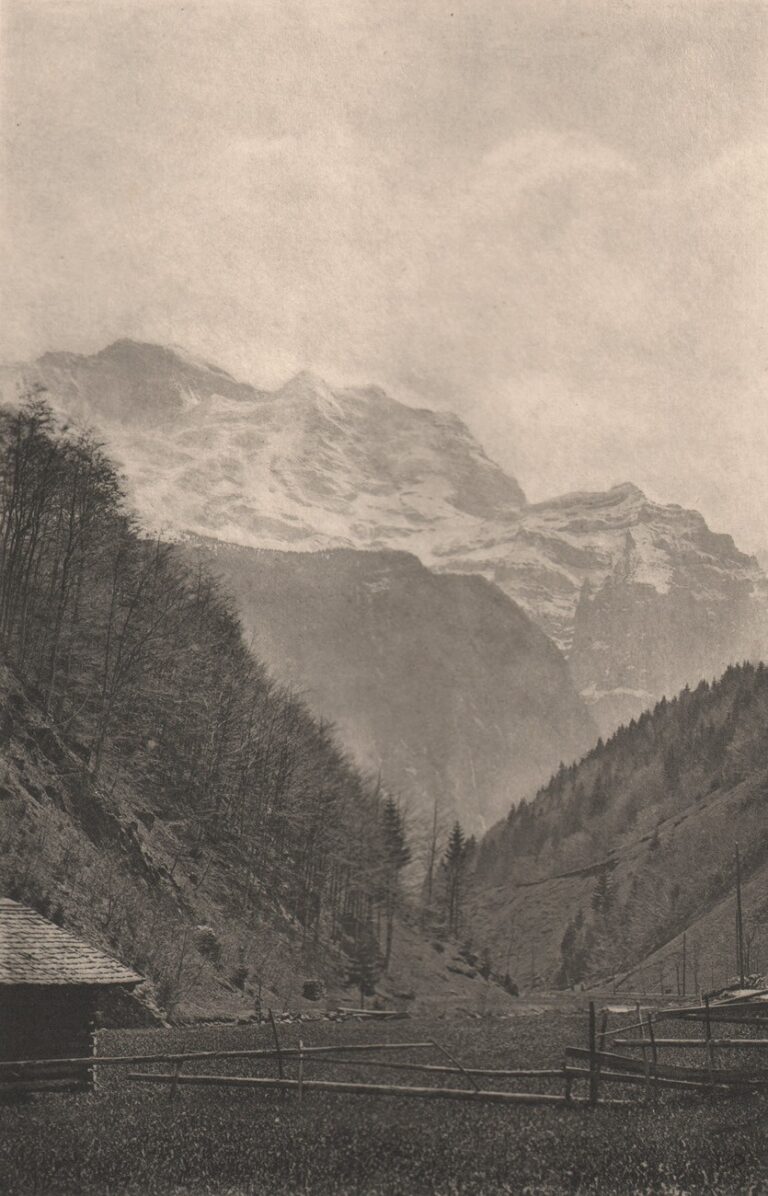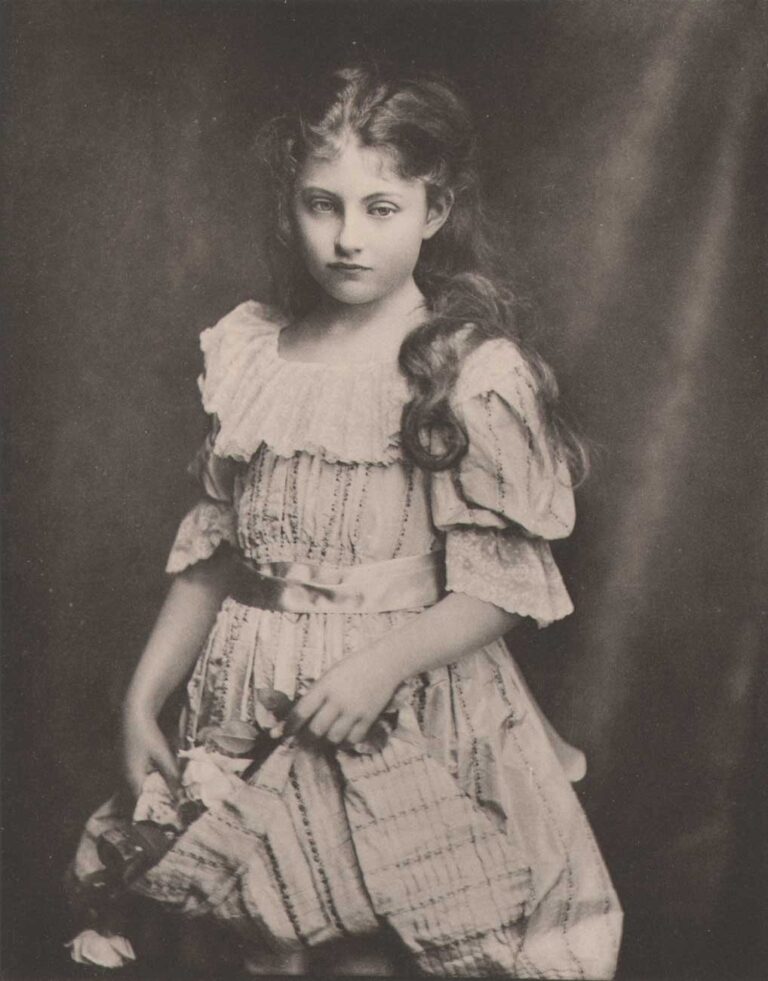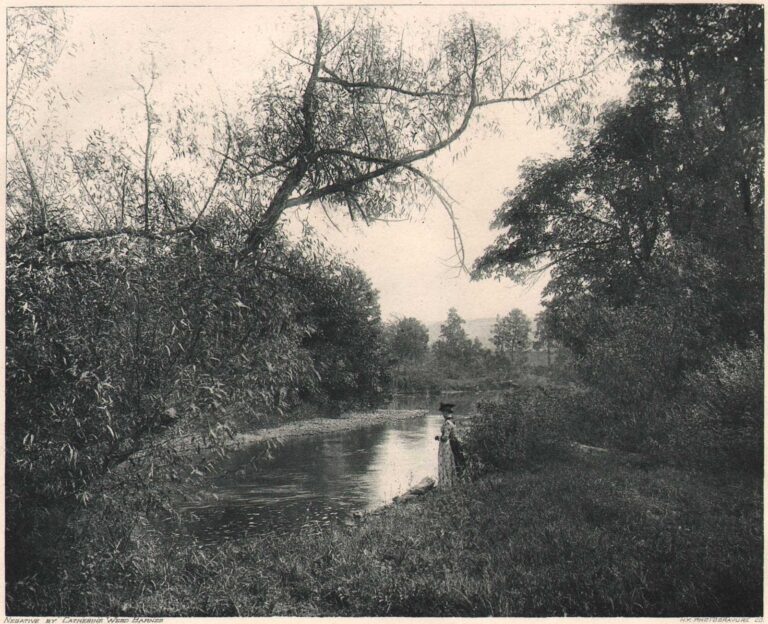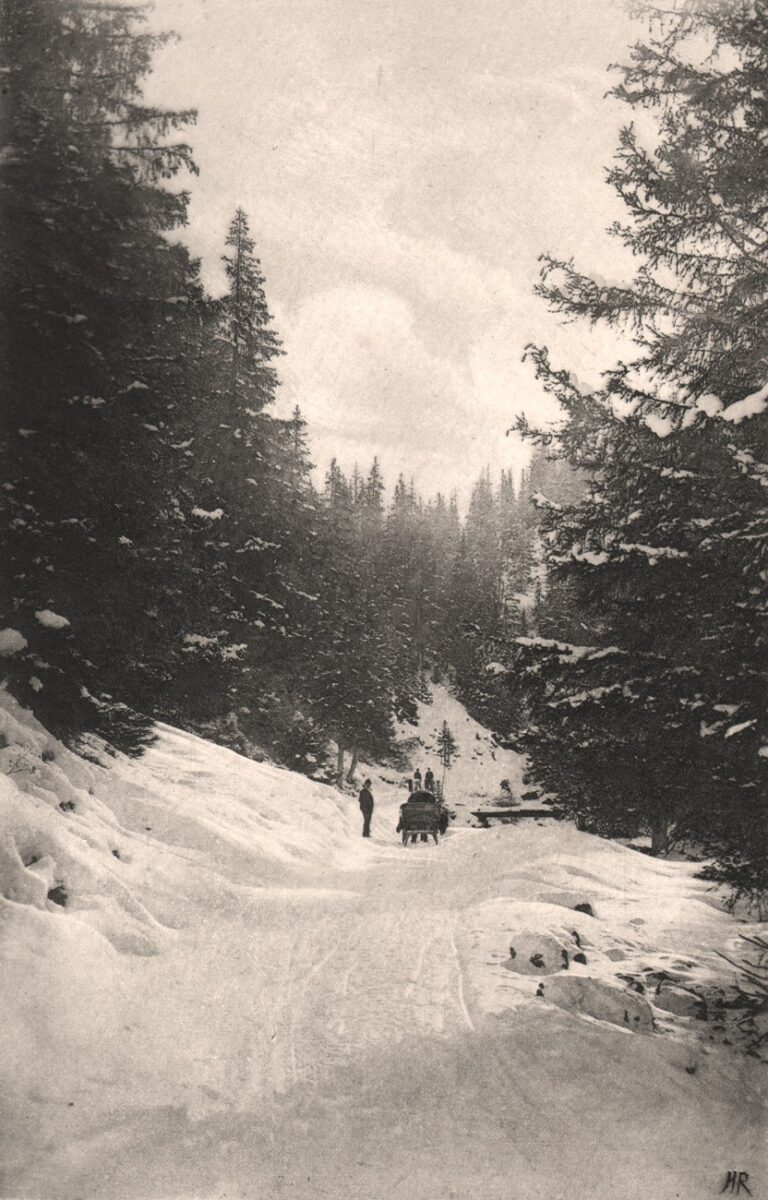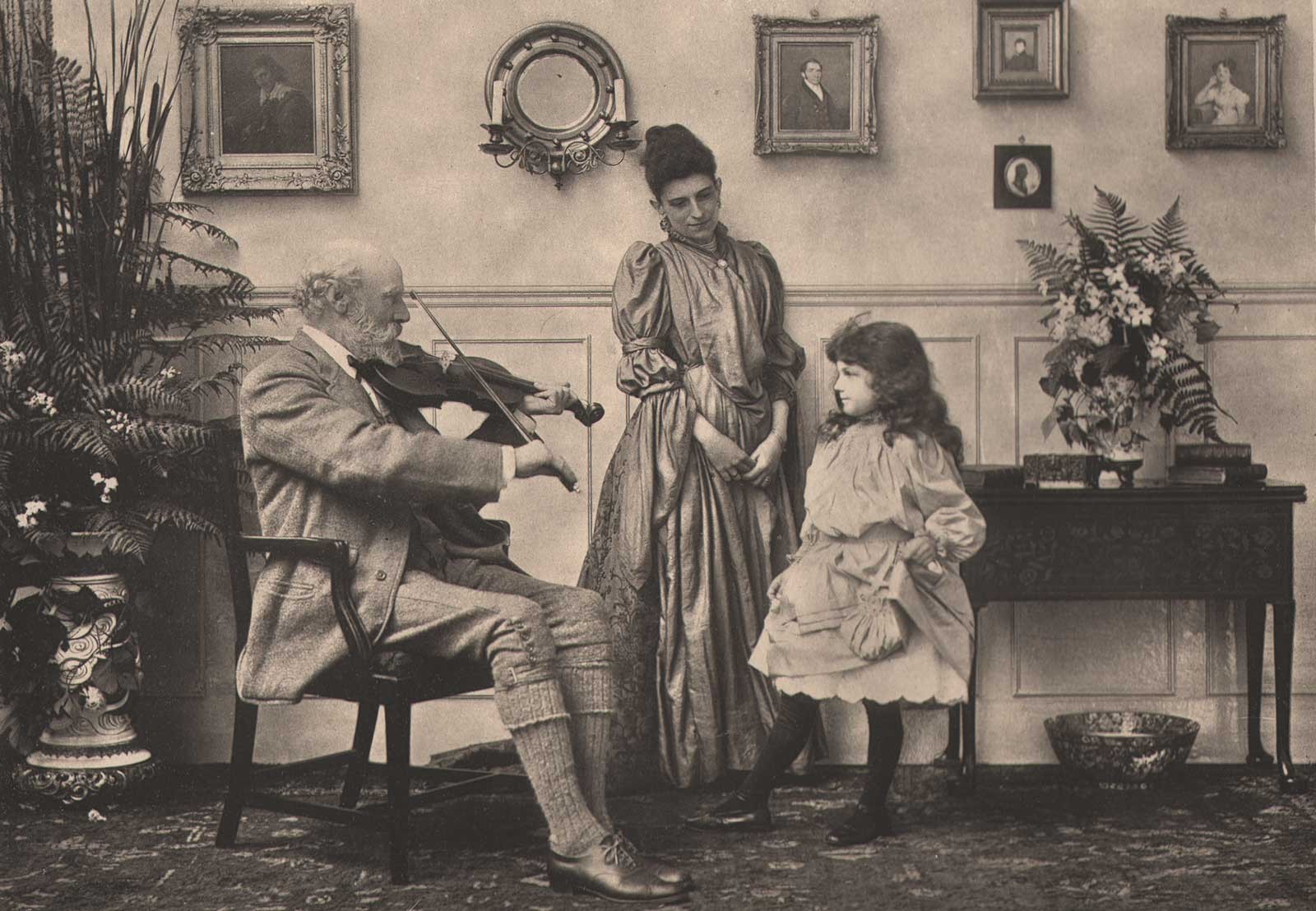
Ce N’Est Que Le Premier Pas Qui Coûte
Commenting in the accompanying catalogue letterpress, Henry Peach Robinson writes of Cassels work and this plate:
We next come to a bit of bright daylight among the fog-four pictures by Mr. W.R. Cassels (27 to 30), with no mystery about them except as to how they could be so bright and cheerful. There is no more valuable quality in the present state of follow-my-leader photography than individuality. Mr. Cassels has apparently dared to think for himself in an opposite direction to “the general,” and his pictures are unlike others, yet true photographs. We have selected Ce n’est que le premier pas qui coûte (28) for illustration. It is a simple subject. A handsome old gentleman is playing to a little girl, who is absorbed in the music, that instrument which may be induced to give forth divine harmonies or set your teeth on edge. We do not care for a French title to a thoroughly English picture, and would suggest, instead of the one used, the following line from a poet whose works Mr. Cassels may remember:- “Low murmurs of sweet mystic melodies.”
Biography: Walter Richard Cassels: 1826-1907
Walter Richard Cassels was born in London on 4 September 1826. His father Robert was a British consular official, and Walter spent much of his early life in India. Eventually he went into partnership with two of his brothers in a business firm in Bombay. He served in the legislative council of Bombay from 1863 to 1865. After 1865 Cassels returned to England.
In 1874 an anonymous work appeared entitled Supernatural Religion: An Inquiry into the Reality of Divine Revelation. The work attracted immediate attention, and there was much speculation as to the identity of the learned author; however, no one would admit to the authorship. Many books and articles were soon written responding to the criticism of Christianity made in Supernatural Religion. The most famous of these is a series of essays by Bishop J.B. Lightfoot. The Bishop’s essays were later collected and published as a book. Meanwhile, the author of Supernatural Religion was finding his book had gone into a sixth printing by 1875. In 1877 a third volume was added, and a completely revised edition appeared in 1879. A series of anonymous replies to Bishop Lightfoot and other critics appeared — one as a series of magazine articles, the others as notes or prefaces to subsequent printings of Supernatural Religion. These refutations were also collected and published as a book.
Word of Cassels’ authorship of Supernatural Religion began to leak out in 1895, when he published a series of signed articles on theology. However, Cassels never made public acknowledgement of the fact that he wrote Supernatural Religion. In fact, very little is actually known about Cassels’ private life, or of how he became such an expert in the early history of Christianity. It is known that hecollected art, wrote poetry, and was a Fellow of the Royal Photographic Society. He never married and died in London on 10 June 1907. (FreeThought Archives online resource accessed December, 2017)
Title translation from the French: “It is only the first step that costs anything” – Mme du Deffand (1697–1780)
alternate: The First Step only costs us Remorse
